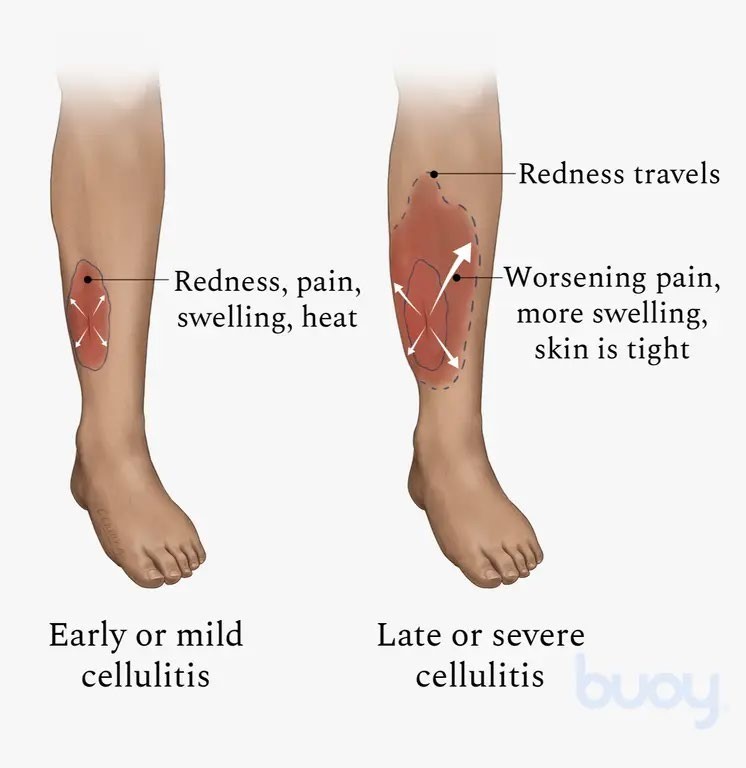A nurse is caring for a client who has chronic back pain and asks about receiving acupuncture for relief. Which of the following findings should the nurse identify as a contraindication to receiving this treatment?
Hypertension
Cellulitis
Obesity
Migraines
The Correct Answer is B
Cellulitis is a contraindication to receiving acupuncture treatment. Acupuncture involves the insertion of needles into the skin, and if the client has an active skin infection such as cellulitis, there is a risk of spreading the infection.
Option a is incorrect because hypertension is not a contraindication to receiving acupuncture.
Option c is incorrect because obesity is not a contraindication to receiving acupuncture.
Option d is incorrect because migraines are not a contraindication to receiving acupuncture; in fact, acupuncture may be used to treat migraines.

Nursing Test Bank
Naxlex Comprehensive Predictor Exams
Related Questions
Correct Answer is C
Explanation
When caring for an immunocompromised client, the nurse should prioritize infection prevention and control measures. One essential action is to cleanse hands with an alcohol-based hand rub before client contact. Hand hygiene is crucial in reducing the transmission of microorganisms and preventing infections. Using an alcohol-based hand rub is effective in killing many types of germs, including bacteria and viruses.
Let's now discuss why the other
Options are not the correct answers:
a. Place the client in a semiprivate room: Placing the client in a semiprivate room increases the risk of exposure to potential infections from other individuals. Immunocompromised clients have a weakened immune system, making them more susceptible to infections. Therefore, it is recommended to provide them with a private room to minimize the risk of exposure to pathogens.
b. Have the client apply a mask when children are visiting: While it is generally important to take precautions when visitors are present, having the client wear a mask when children are visiting may not be sufficient to protect the immunocompromised client. Children can carry and transmit various infectious diseases, even without displaying symptoms. Therefore, it is more appropriate for healthcare providers and visitors, including children, to adhere to strict hand hygiene and other infection control measures to minimize the risk of infection transmission.
d. Use sterile gloves to provide perineal care: The use of sterile gloves is not necessary for routine perineal care unless there is a specific indication, such as an open wound or surgical site. For routine perineal care, clean, non-sterile gloves are sufficient. Using sterile gloves unnecessarily can contribute to the development of antimicrobial resistance and increase healthcare costs without providing any additional benefits.
In summary, when caring for an immunocompromised client, the nurse should prioritize infection prevention and control. Cleansing hands with an alcohol-based hand rub before client contact is an important action to reduce the risk of infection transmission. The other
Options, such as placing the client in a semiprivate room, having the client wear a mask when children are visiting, and using sterile gloves for routine perineal care, are not the appropriate actions in this scenario.

Correct Answer is D
Explanation
A. Complete the bath even if the client is in distress. – Forcing the bath can increase agitation and damage trust. If the client becomes distressed, pause, reassure, and try again later.
B. Allow the client to select the temperature of the bath water. – Clients with dementia may have impaired sensory perception, increasing the risk of burns or discomfort. The nurse should check the water temperature to ensure safety.
C. Give detailed instructions for the client to follow. – Clients with dementia may struggle to process multiple steps, leading to frustration. Instead, use simple, one-step instructions and gentle guidance.
D. Use distractions when bathing the client.Clients with dementia may experience anxiety, agitation, or distress during bathing. Using distractions, such as playing soothing music, talking about familiar topics, or providing a comforting touch, can help make the experience less stressful and more cooperative.
Whether you are a student looking to ace your exams or a practicing nurse seeking to enhance your expertise , our nursing education contents will empower you with the confidence and competence to make a difference in the lives of patients and become a respected leader in the healthcare field.
Visit Naxlex, invest in your future and unlock endless possibilities with our unparalleled nursing education contents today
Report Wrong Answer on the Current Question
Do you disagree with the answer? If yes, what is your expected answer? Explain.
Kindly be descriptive with the issue you are facing.
